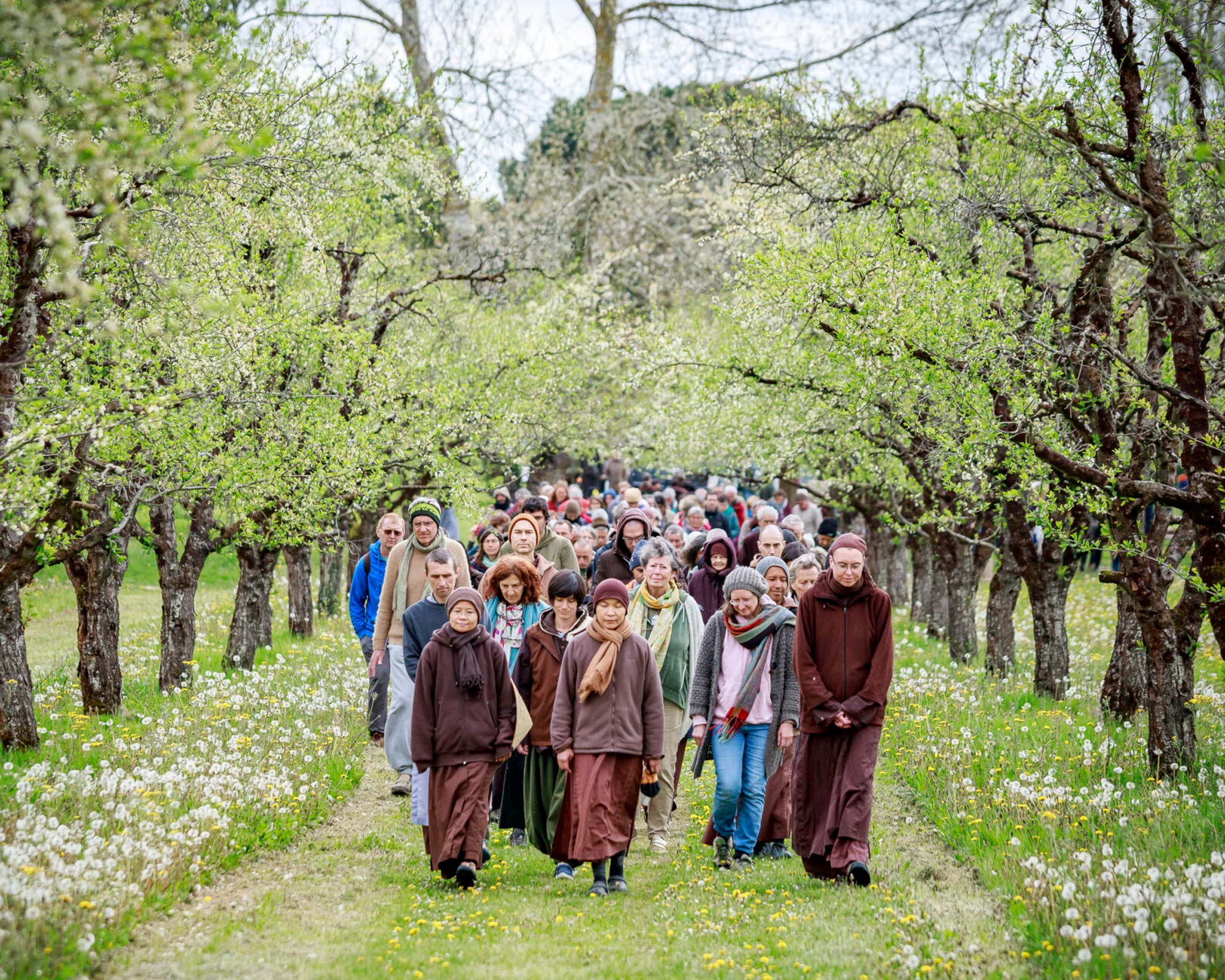A Collective Awakening
Regardless of what work we do, part of our work is to help bring about a collective healing, transformation, and awakening for our own well-being and for the sake of our planet. The insight of interbeing can help in this, but we need a collective awakening. Every one of us has to work to produce this collective awakening. If you’re a journalist, you can do this as a journalist. If you’re a teacher, you can do this as a teacher. Without this awakening, nothing will change. Awakening and awareness are the foundation of all change. Each of us has to sit down and look deeply to see what we can be, what we can do today to help relieve the suffering around us, to help reduce stress, and to bring about more joy and happiness. We can do this by ourselves or with a group of people, with our colleagues or with our family. There is so much suffering in the world, but, at the same time, there is also the potential for so much joy. By living your life with awareness, producing your own work of art, you can contribute to the work of collective awakening.
Every human being has the capacity for understanding and love. Everyone has the seed of great love inside. There’s a Buddhist story about a bodhisattva whose name was Never Disparaging. His only job was to go around telling people, “I don’t dare to underestimate you. You have the capacity to become a buddha, a person with great awareness and compassion.” That was his only message. He made a vow to go to everyone—rich, poor, educated, less educated—and he always said the same thing. Sometimes people thought that he was making fun of them. Sometimes they beat him up. But he still continued, “This is what I truly believe. I want to bring you the message that you are capable of becoming a buddha. Everyone is capable of understanding and of loving.”
But one Buddha is not enough, we need others, even if they’re only part-time buddhas. When we live our lives with awareness, we’ll naturally, and without effort, transform the lives of those around us. We can start by building a collective community of practi-tioners that can support us when we go through hard times. The collective energy of mindfulness is very powerful. When we surround ourselves with people who are also practicing mindfulness, we benefit from their energy. It’s like allowing the water in the stream to be embraced by the ocean.
Creating Community at Work
Once you’ve tried practicing mindfulness at work for a while, you can see if there are others who would be interested in practicing mindful breathing, sitting, and walking with you. If you’re surrounded by people who are practicing mindfulness together, then you’ll all be supported by the collective energy, and the practice will become very easy, very natural.
Even if at first you can’t find others in the same workplace to practice with you, your practice will nevertheless have a beneficial effect on those around you and on the whole work environment. The more you practice mindfulness, the more you will know how to change your work environment in a positive way. Every one of us is capable of contributing to the collective energy of mindfulness. Your practice of mindful breathing and mindful walking will support the others around you. When we practice mindful breathing and mindful walking, we become a bell of mindfulness for everyone. When you walk mindfully, enjoying every step you make, you encourage others to do the same, even if they don’t know that you’re practicing mindfulness. When you smile, your smile supports everyone around you and you remind others to smile as well. The presence you have when you practice is very important.
When you’re on your own and you don’t have the collective energy of your community, you still have to practice in order to protect yourself from the strong emotions, violence, and anger of others. And you also have to practice to protect yourself from accidents, from your own unskillfulness, and your own anger. If you spill something, trip, injure yourself, or explode in anger at someone, these are all accidents that come from not practicing enough mindfulness. If you’re peaceful and lucid, you won’t attract accidents.
Adapted from Work: How to Find Joy and Meaning In Each Hour of the Day (2017), with permission from Parallax Press, Berkeley, California. www.parallax.org


